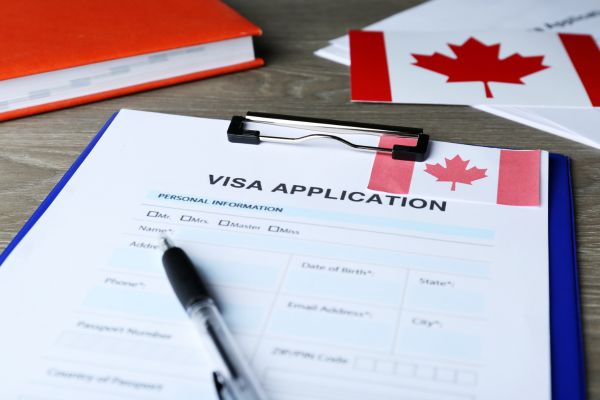Navigating Canada's Business Immigration Landscape: Insights On The Canada Investor Visa

The landscape of Canada business immigration has become increasingly complex as recent policy shifts reshape entry pathways. While Canada maintains its reputation for welcoming newcomers, the Investor Visa Program faces significant changes as immigration targets signal a more selective approach. The government's decision to reduce immigration from 500,000 in 2024 to 395,000 in 2025, with further reductions to 380,000 by 2026 and 365,000 by 2027, marks substantial immigration policy changes.
Economic Immigration Trends Show Significant Shifts
The impact on Canada business immigration is particularly pronounced in the new Immigration Levels Plan. Economic immigration targets will decrease from 301,250 in 2026 to 225,350 by 2027, with the Federal Business stream facing dramatic cuts from 6,000 to just 1,000 annual spots by 2026. This reduction reflects strategic immigration policy changes, emphasizing quality over quantity in business immigration applications.
Evolution of the Investor Visa Program
Canada's Investor Visa Program has undergone significant transformation since the termination of the Immigrant Investor Program in 2014. This historical shift demonstrates Canada's commitment to ensuring that business immigration genuinely contributes to economic growth rather than simply facilitating wealth transfer. Current economic immigration trends suggest a move toward more merit-based selection criteria.
Investment Requirements and Financial Criteria
The Canada business immigration landscape demands substantial financial commitment. Current economic immigration trends show minimum investment requirements ranging from CAD 150,000 for startup visas to several million for larger business ventures. The Investor Visa Program evaluates not just the investment amount but also the source of funds, business experience, and potential economic impact. This comprehensive assessment ensures that incoming business immigrants contribute meaningfully to Canada's economic growth.
Startup Visa Processing: Navigating Complex Requirements
The Federal Startup Visa Program, while appearing attractive, presents significant hurdles in startup visa processing. With approval rates hovering between 50-65% and processing times extending up to 36 months, applicants face a lengthy and uncertain journey. The requirement to secure support from designated Canadian organizations adds another layer of complexity to an already demanding process, as highlighted in the recent changes.
Public Opinion and Policy Direction
Recent surveys reveal a significant shift in public sentiment, with 53% of Canadians now viewing immigration negatively. Support for high immigration levels has dropped to its lowest point in 25 years, with six in ten Canadians believing the country accepts too many immigrants. This changing public opinion has directly influenced economic immigration trends and government decisions, leading to more stringent policies across various Canada business immigration streams, as reported by Abacus Data.
Housing and Infrastructure Challenges
Approximately 72% of Canadians believe current immigration targets are too ambitious, primarily due to concerns about housing availability and infrastructure capacity. These concerns have become central to immigration policy changes, forcing policymakers to balance economic growth with sustainable integration capabilities. The Investor Visa Program now faces increased scrutiny regarding its participants' potential impact on local housing markets.
Technology Sector Focus and Innovation
Recent immigration policy changes have placed increased emphasis on technology and innovation sectors. The startup visa processing system now prioritizes applications from entrepreneurs in artificial intelligence, biotechnology, and clean energy sectors. This strategic focus aligns with Canada's goal of becoming a global innovation hub while maintaining sustainable immigration levels. Business immigrants bringing technological expertise and innovative solutions often receive expedited processing and additional support, as noted in recent updates.
Regional Pathways Through Provincial Programs
Provincial Nominee Programs (PNPs) continue to serve as crucial pathways for Canada business immigration, though success rates vary significantly by region. Each province maintains unique criteria based on local economic needs, creating a complex web of opportunities and requirements for potential Investor Visa Program applicants to navigate. The stabilization of PNP targets reflects broader reductions across economic categories, as detailed here.
Long-term Economic Contributions
Despite growing concerns about immigration levels, 70% of Canadians acknowledge immigration's positive impact on the national economy. This paradox highlights the complex balance between immediate resource constraints and long-term economic benefits. Startup visa processing increasingly emphasizes applicants' potential for sustainable economic contribution over immediate investment capacity.
Strategic Planning for Success
For those pursuing the Investor Visa Program, understanding these evolving dynamics is crucial. Success requires careful planning, thorough preparation, and realistic expectations regarding processing times and approval chances. The competitive landscape demands stronger business plans and clearer demonstrations of economic value.
Integration Support Systems
Recent immigration policy changes have emphasized the importance of successful integration. Business immigrants must now demonstrate not only financial capacity but also clear plans for community engagement and sustainable business development. This holistic approach aims to ensure that Canada business immigration contributes meaningfully to local economies, as emphasized by Bellissimo Law Group.
Compliance and Monitoring Systems
The evolving Canada business immigration framework includes enhanced compliance monitoring. Business immigrants must meet specific milestones and reporting requirements to maintain their status. These measures ensure that Investor Visa Program participants actively contribute to their proposed business ventures rather than treating the program as a passive investment opportunity. Regular audits and progress reports have become standard features of the immigration process, reflecting the government's commitment to program integrity.
Future Outlook and Adaptations
As economic immigration trends continue to evolve, potential applicants must stay informed about policy changes and program requirements. The trend toward more selective immigration policies suggests that future success in Canada business immigration will depend on strong business plans, genuine economic contributions, and alignment with Canadian economic priorities.
Conclusion
While Canada business immigration remains possible, immigration policy changes have made the path more selective and complex. Understanding current economic immigration trends, preparing thoroughly for startup visa processing, and maintaining realistic expectations are crucial for success. As Canada balances its economic needs with infrastructure capacity, Investor Visa Program applicants must demonstrate a clear value proposition and commitment to contributing to the Canadian economy.
Leave a Comment:
Upload Comment: